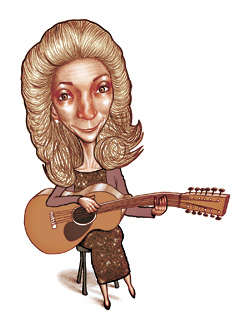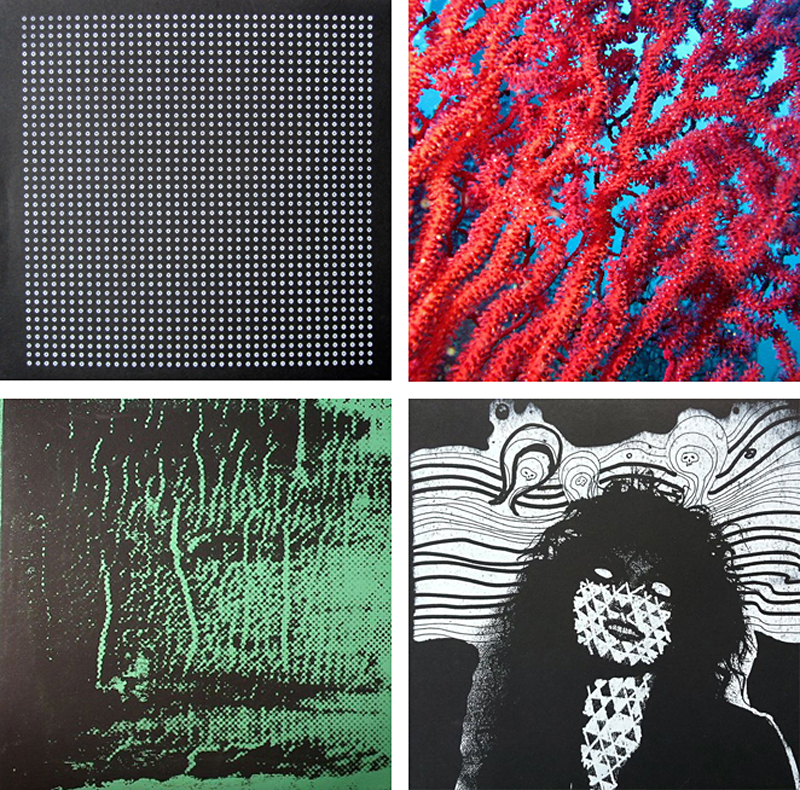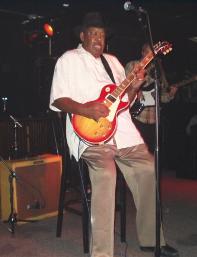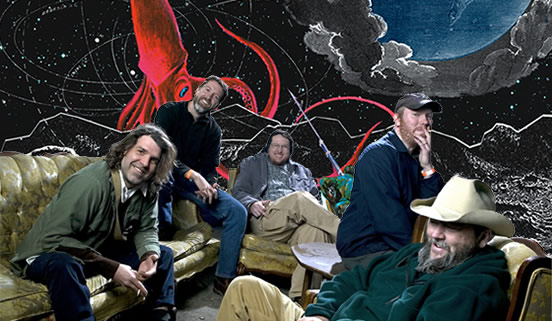For the sake of argument, let’s just say you’re at the one saloon in town where indie rockers sport fur vests and Native American beadwork. From across the room, you spot Joanna Newsom or Josephine Foster or one of these other delicious, young freak-folk babes. Feeling well-oiled and ready for a little chitchat, you mosey on over to Chanteuse X and ask her a question that’s been gnawing at your noggin like termites in a bag of pine-bark mulch: Excuse me, but I find your music to be enormously inspirational, and I would really love to find out which female singers have inspired you.
Because I read Pitchfork and Arthur, I know who these musicians worship. Most likely she’ll begin rattling off hip flavors like Karen Dalton, Vashti Bunyan, Bridget St. John, Shirley Collins, and Judee Sill. She’ll then take a sip of her organic 9 percenter and volunteer an icon or two—pick two of three: Joni Mitchell, Sandy Denny, Nico. Of course, a few dark horses will emerge, possibly Patti Smith, Linda Ronstadt, Grace Slick, Linda Thompson, or Steve Nicks. As for wild cards…hmm…how about Iris DeMent and Hope Sandoval?
But here’s the thing: I’d bet the next round that Judy Collins would not be mentioned. Never mind how the lovely Ms. Collins covered Joni and Leonard Cohen before all others. Never mind her gorgeous interpretations of songs written by Fairport Convention’s Denny and Robin Williamson of the Incredible String Band. Never mind the woman’s arty, genre-busting forays into Euro-snob composers like Jacques Brel and Kurt Weill.
Of course, I would love to never mind Collins’ connections to Randy Newman, Roger McGuinn, and Van Dyke Parks in fuller detail, but due to space limitations, let’s skip to the coolest never mind of all: Never mind how Alice Cooper lifted “Hello, Hooray,” the introduction to Billion Dollar Babies (the greatest glam album ever), from Judy Blue Eyes’ 1968 LP, Who Knows Where the Time Goes. (And yes, Crosby, Stills & Nash were indeed singing about her—just before she dumped Stills. What a powerful goddess.)
None of this cool stuff matters to the indie freaker, you see, because the Seattle-born Collins—ever since 1966’s In My Life LP—has been mingling folk with lush theater music. And if there’s one thing in this world that scares the living bejeezus out of most folkies both young and old, it’s the bright lights of Broadway (and, by extension, Tin Pan Alley).
But this fear, which I’ve heard the perpetually hip express more times than I can count, sells our Bluebird short. (And yes, Stills also wrote “Bluebird” about her.) To understand just how singular her aesthetic truly is, you have to see her live, something I did in August at—get this—the Ohio Cancer Research Associates’ 17th Cleveland Star Award Gala. Living in the Rust Belt at the time (don’t ask), I stumbled into a pair of free tickets to this black-tie, big-money affair. And let me tell you, Collins gave one of the most stunning performances I’ve seen all year. You just haven’t lived until you’ve seen a woman, a true virtuoso, pick a 12-string guitar while wearing sequins.
Collins, who plays all kinds of fund-raisers every year, put on more of a career-spanning revue than an actual concert (think the “Tom Cruise: Dress Casual” skit from The Ben Stiller Show or your average Neil Diamond extravaganza). Switching between her acoustic axe and a glimmering grand piano, she offered the audience schmaltzy between-song anecdotes about her life and music and the importance of raising awareness about land mines before soaring into perfectly crystallized renditions of her own tune “My Father,” Joni’s “Chelsea Morning,” Stephen Sondheim’s “Send in the Clowns,” and the Beatles’ “Blackbird,” off her new disc, Judy Collins Sings Lennon & McCartney.
Collins’ supper-club savvy fucked my mind; in a lot of ways, it’s far weirder than much of this freak-folk business. But more important is the breadth of her vision. Although she has never exuded Nico’s radical alienation or Denny’s haunting paganism, Collins possesses the purest expression of beauty I’ve ever heard. And with that purity she expertly paints a panoramic view of folk, pop, and classical that’s uniquely hers.
The night’s highlight came with “John Riley,” a traditional number off Collins’ first record, Maid of Constant Sorrow, which she recorded in 1961 when she was nothing but folk. Everything about it was utterly perfect and profoundly soulful. Her lithe fingers wove an exquisitely pulsating symphony on the 12-string, while her mouth released a diamond-cut vibrato that must’ve stopped every Rolex in the joint.
I had never heard a female sing folk like this, and I wanted Joanna, Josephine, Meg Baird, Dawn McCarthy, Marissa Nadler and all the rest of them to hear what I was hearing. Because this side of Judy Collins more than deserves their adulation.








